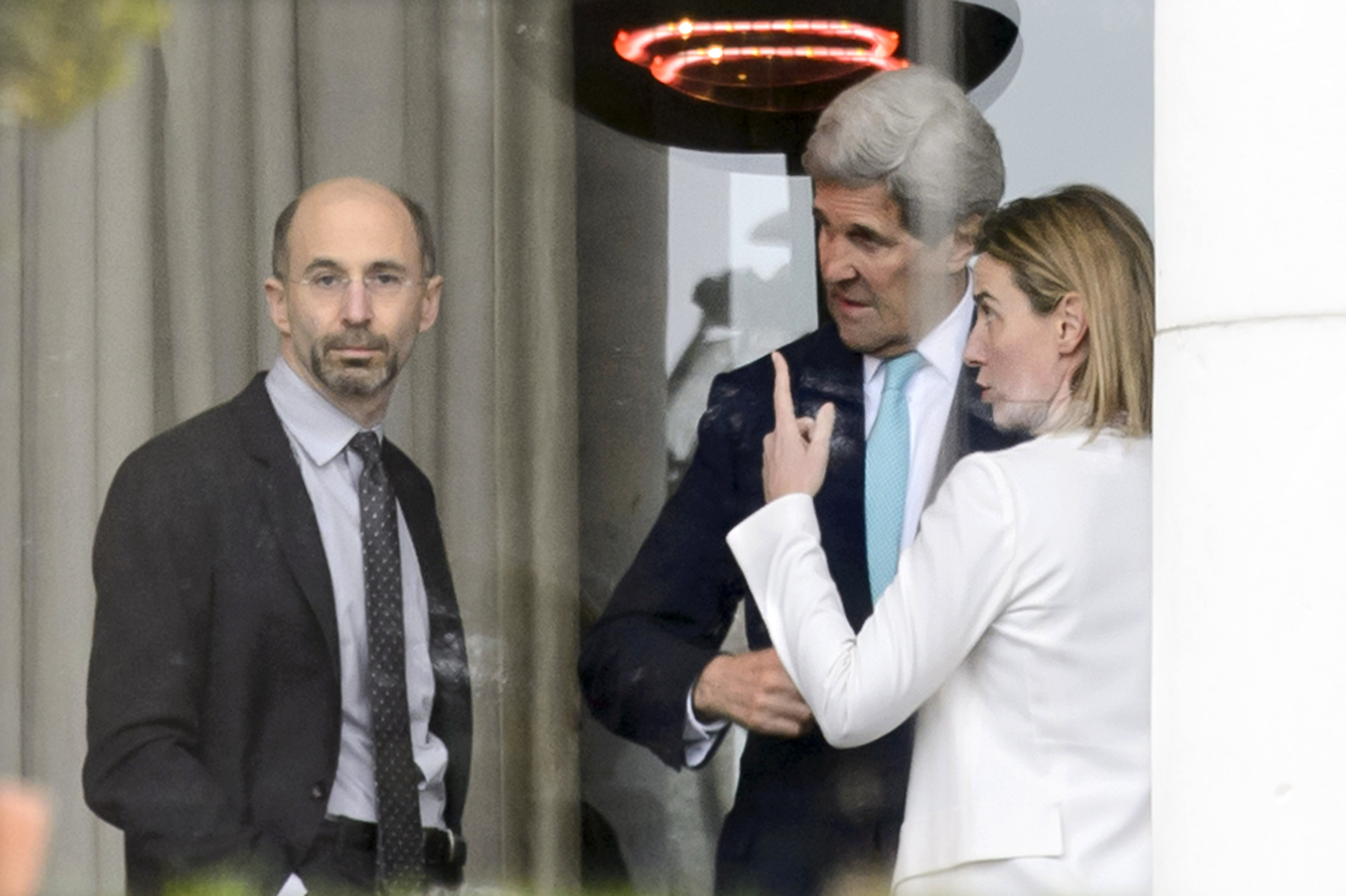
The Obama-Biden foreign policy folly
Dominic Green
Video Embed
Robert Malley was the State Department’s lead negotiator in the Obama and Biden administrations’ efforts to “contain” Iran’s nuclear weapons program by licensing it. In April, the State Department suspended Malley’s security clearance, placed him on unpaid leave, and scrubbed his page from its website. Malley is now under investigation by the FBI: an unusually high level of scrutiny.
We call all to scrutinize an aspect of Malley’s associations after the publication on Sept. 29 of emails between the Iranian Foreign Ministry and the members of the Iran Experts Initiative, or IEI. The emails were obtained by Iran International, an anti-regime Iranian TV channel based in London, and jointly reported on the Semafor website by Jay Solomon, an ex-Wall Street Journal reporter and Iran specialist.
NEWSOM DEFENDS FAILURE TO ADDRESS HUMAN RIGHTS ABUSES WITH CHINA’S XI JINPING
The technical term for what the Iranians were up to is “influence operation.” The IEI was set up in 2014 by senior officials in the Iranian Foreign Ministry. It recruited academics and researchers in the Iranian diaspora with the aim of shaping political and public opinion as the Iranian government, then led by Hassan Rouhani, pursued a nuclear deal with the U.S. The IEI was funded and directed by an IRGC official named Mostafa Zahrani. Zahrani was the point of contact between IEI members and Javad Zarif, Iran’s then-foreign minister.
Writing in March 2014 to the head of the Institute for Political and International Studies (the Iranian Foreign Ministry’s think tank), Saeed Khatibzadeh, a diplomat then based in Berlin, described the IEI as a “network” of “6-10 distinguished second-generation Iranians who have established affiliations with the leading international think-tanks and academic institutions, mainly in Europe and the U.S.”
The “core group,” Khatibzadeh reported after meeting with its other two members in Prague, comprised him and two young academics, Ariane Tabatabai and Dina Esfandiary. Esfandiary is a senior adviser on the Middle East and North Africa at the International Crisis Group, a Brussels-based think tank. Robert Malley led the group from 2018 to 2021. Esfandiary joined the group under Malley’s leadership. In 2021, when the Biden administration restarted negotiations with Iran, Malley brought her into the State Department as part of his team. It is not clear whether Malley was aware of Esfandiary’s prior work for the IEI, or that, as the emails suggest, Esfandiary remained in email contact with Zahrani after the State Department had granted her security clearance.

Also in early 2021, Malley brought in Ariane Tabatabai. She currently serves in the Pentagon as chief of staff to Christopher Maier, the assistant secretary of defense for special operations. Again, it is not clear whether Malley knew that Tabatabai, then at Georgetown University in Washington, D.C., had been recruited by the IEI.
Tabatabai’s role at the Pentagon, Solomon notes, “requires a U.S. government security clearance.” In late September, Maier told a congressional committee that the Pentagon is “actively looking into whether all law and policy was properly followed in granting my chief of staff top secret special compartmented information.”
A third close Malley associate, the academic Ali Vaez, leads the International Crisis Group’s Iran Project and was another highly active part of the IEI’s network. In 2014, Vaez emailed directly to Zarif, saying that it was his “national and patriotic duty” to “help you in any way,” including “proposing to Your Excellency a campaign against the notion of breakout.” Vaez consulted with Tehran as he prepared an essay for the National Interest, arguing that the “concept” of Iran having a “breakout time” (the time necessary for assembling a nuclear missile) was “artificial.” In February, Reuters reported, a Pentagon official said the “breakout time” was now down to “about 12 days.” Malley tried to get Vaez into the State Department, too, but Vaez was denied a security clearance.
Ben Rhodes, who was President Barack Obama’s deputy national security adviser, foolishly boasted in a 2016 New York Times profile that the Obama team had pushed through the Iran deal by creating a media “echo chamber.” As David Samuels wrote, in early 2015, “legions of arms-control experts” popped up on cue and became “key sources for hundreds of often-clueless reporters.” Rhodes admitted that his experts had been “saying things that validated what we had given them to say.”
The IEI emails show how the Iranian regime was running its own operation on the same lines at the same time. Were any of the White House’s “experts” also Tehran’s “experts”? In the 2016 New York Times interview, Rhodes named the International Crisis Group’s Iran Project as one of the “outside groups” deployed by the White House.
The State Department refuses to comment on Malley. You only need to turn on the news to see why. The Obama-Biden Iran policy enriched and empowered the world’s leading state sponsor of terrorism as it pursued nuclear weapons. That decadelong folly collapsed when Hamas attacked Israel on Oct. 7, and the U.S. is now heading for war with Iran. The Malley case should be a scandal, but it is being eclipsed by the strategic disaster that Malley helped to create.
